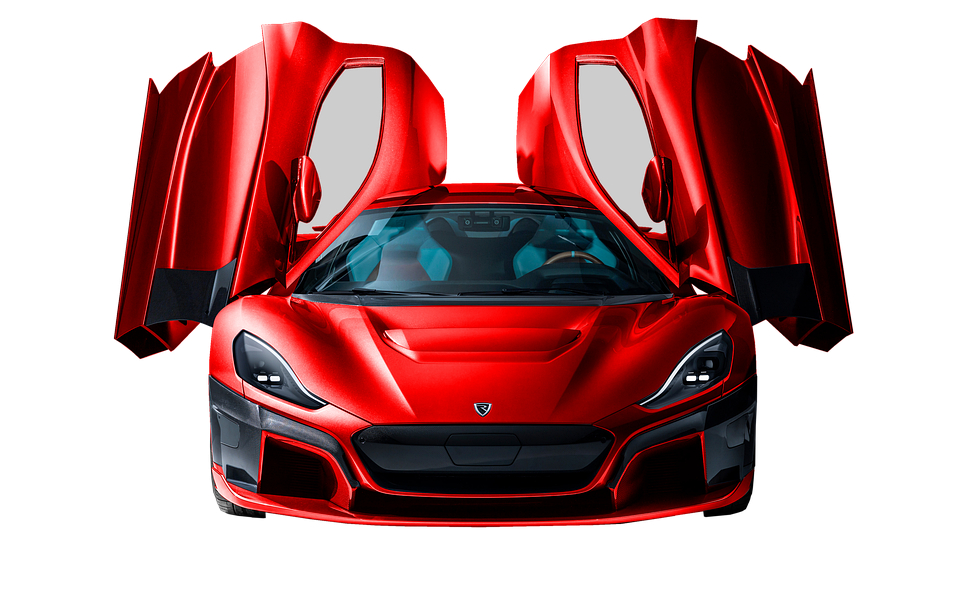
November the 11th, 2020 – The words ”Croatian automotive industry” probably sound funny to anyone remotely familiar with the draconian attitude towards foreign investment here, but shining entrepreneurial stars like Mate Rimac believes that Croatia has a chance, and a good one at that.
As Novac/Bernard Ivezic writes, five years after Uber entered the Croatian market and changed the world of taxi transport, a new initiative to improve transport has emerged, but with far broader implications. Rimac Automobili has announced the establishment of the Association for the Promotion and Regulation of Autonomous Vehicles. They want to bring together and support the work of companies, regulators, cities and everyone else who would participate in the future autonomous vehicle ecosystem.
Mate Rimac, founder and CEO of Rimac Automobili, says that by the year 2030 there will be a bigger change in the automotive industry than we’ve seen in the last hundred years. In September alone, more electric cars than diesel cars were sold in Europe for the first time.
“Many think that the big change in the car industry is electrification, but when you add vehicle networking and autonomous driving into the mix, our attitude towards car production and use will become very different. In the next five to ten years, autonomous vehicles will change everything, and we want Croatia to recognise that and seize the opportunity,” Rimac said.
He stated that Croatia missed out on two large investments, so this is its “third time lucky” chance to build a Croatian automotive industry.
R&D centres
According to the data from the European Automobile Manufacturers Association (ACEA), only 2,861 people work in the Croatian car industry, and according to the CBS, that number is growing to about 10,000. It accounts for only 1.1 percent of total production in Croatia and 4.7 percent of Croatia’s exports. Namely, companies in this sector export more than 90 percent of their production, regardless of whether it is research and development (R&D), software or goods.
It is the investments of the automotive industry in research and development that are growing the most and they are changing the image of the future automotive industry and the autonomous transport industry in general, both in the world and right here in Croatia, expanding it beyond already well-known players such as AD Plastik.
Two years ago, the German company dSPACE opened its R&D centre for the automotive industry in Zagreb, and this year Porsche did the same in cooperation with the Croatian company Infinum. Porsche is also present in Varazdin with a development centre for its company Cetitech.
Here in Croatia, the Austrian AVL and the German Atron also have an R&D centre. Work on autonomous vehicles and robots for industry in this country is also done by, among others, DOK-ING, Gideon Brothers and Inetec.
In the field of cyber security, companies such as Reversing Labs are present, navigation is dealt with by Mireo and OptimoRoute, and the hardware for such vehicles is produced by Xylon. Startups such as AIR-RMLD and Hipersphere and King ICT work with autonomous drones in Croatia, too.
We haven’t yet found any examples of robotic ships in Croatia, but the Viktor Lenac shipyard does engage the work of robots to rebuild ships. In addition, Rimac is not the only one in Croatia that produces vehicles. Hittner and Rasco, among others, are also involved in the Croatian automotive industry, however small it currently is.
While some entrepreneurs have already recognised the new opportunities which shine within the Croatian automotive industry, Rimac also looked at deadlines. Autonomous drones already exist in the aviation industry. Autonomous ocean-going ships are expected to become a reality by around 2035, and Mate Rimac expects autonomous vehicles to arrive around 2030.
The Hungarians are in the lead
“Back in 2015, cars weren’t autonomous at all, today they are at their second level and by 2030, vehicles will be 80 percent autonomous and therefore networked and shared. In the era of autonomous vehicles, the car will no longer sit in a car park and only actually be in operation for four percent of the time, instead, it will be used 70 percent of the time and cover more than 250,000 miles a year.
This raises many questions because in such a world no more traffic police are needed, the business model for airports must be changed because parking brings them 40 percent of their revenue, and the question arises who will own the vehicle because one robotic taxi will replace 20 traditional vehicles,” explained Rimac.
The EU warns of a similar thing with its regulatory tsunami. In two months, from January 2021, the first regulation of smart, robotic or, more simply, self-driving cars will come into force in Croatia and across the rest of the EU.
According to them, vehicles will have to have a black box, much like planes do, and the rules of application of the system for automatic lane monitoring will be defined. One year later, an EU regulation will come into force, which will expand the set of rules that manufacturers will have to comply with and which will automatically be applied in Croatia as well.
In neighbouring Hungary, which might come as a shock to some, such projects have been being implemented for three years now.
Sven Loncaric, head of the FER Centre for Artificial Intelligence, agrees with Rimac that statistically, driving autonomous vehicles proves safer than human driving does, although there have also been issues during testing which need to be resolved.
Davor Kovacec, the founder and director of the Croatian company Xylon, which develops hardware for self-driving cars, says that there are many business opportunities in this segment and the development of the Croatian automotive industry and that they also cooperate with some companies in Croatia, although most of their clients are from abroad.
For the latest travel info, bookmark our main travel info article, which is updated daily.
Read the Croatian Travel Update in your language – now available in 24 languages
Join the Total Croatia Travel INFO Viber community.









